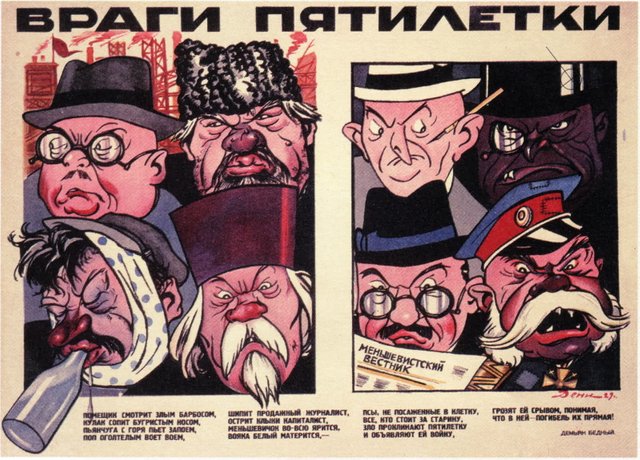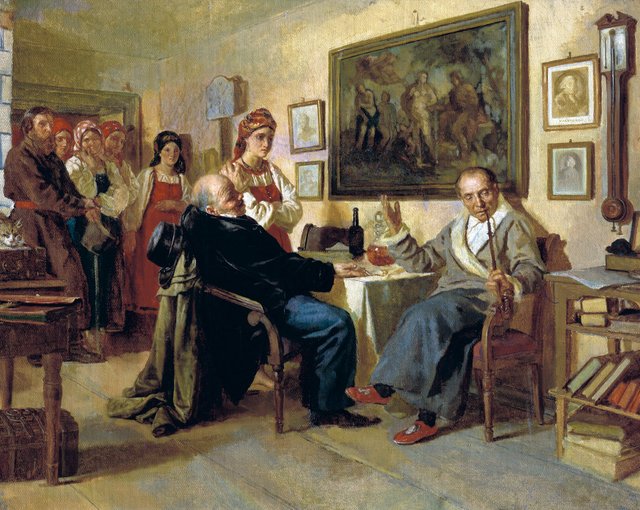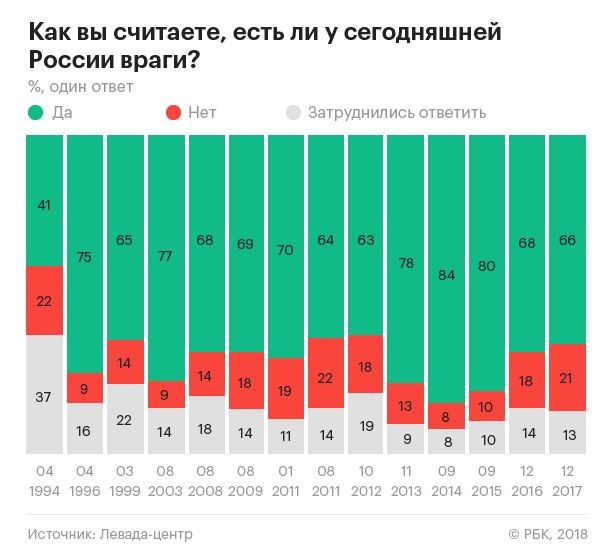If Putin did not exist, it would be necessary to the Russian establishment to invent him. Why did it happen, and what the consequences would be?
Some American politicians and journalists consider that Vladimir Putin is a self-made man. Sometimes he is depicted as an ancient hero who imposes his will on the subjects and the foreigners. I haven’t intending to make his personal characterization. I only try to create a broader picture to explain the pattern, which has led to emerge of such leader.
Quick Putin’s rise wasn’t directly related to his politician's success. Contrariwise, we barely know about his actions and decisions before August 1999. His former service in KGB empowers a halo of mystery. However, Americans shouldn’t deceive themselves analyzing his background or his manner. Even if Yeltsin “successor” would be a former USSR ambassador “Ivan Ivanov”, a man with good sense of humor, the survey of Russian history allows to assume with a high degree of probability that the US – Russia relations would be now at the same low level as they actually are.
Modern period of history of Russia began in 1917 when an unprecedented replacement of the national elite started. During the Revolution, the Civil War and the Terror an old bureaucracy, prominent artists and scholars were wiped off from the Russian ruling class. To perform the transitions and mobilize lower classes the Soviet leaders, especially Joseph Stalin, created an enormous propaganda system which was heavily based on the fear. Thereafter the government engineered a primitive worldview characterizing the world as the clashes between “friends” and “foes”. Enemies were numerous and powerful. Friends appeared as an ad hoc phenomenon. Why did people believe in a black and white explanation? The answer would be related to the collective unconscious of the Russian peasantry.

Enemies of the Soviet economy are landowners, kulaks, alcoholics, prists, journalists, capitalists, the Mensheviks, the White Army. Soviet poster. 1929.
According to the 1926 census, 81% of the Soviet population were peasants. Moreover, a huge part of the urban population was first-generation townspeople. That’s why so important to know the history of the Russian countryside. Peasant’s mentality had been forming since the Middle Ages. A prominent feature of the mindset was a fear of outer space, whatever it was: foreign countries, Russian elites or a neighboring settlement. Infinite waiting of a threat emerged as a result of hard and dangerous life conditions. Prominent 19-century Russian historian Sergey Solovyov wrote:
[In the Middle Ages] small population was dispersed over the enormous empty spaces, which were enlarged without adequate population growth. All those were poor and weak, without resources to self-reliance, without any possibility to protect themselves faced with any kind of power.
The worst, the Russian government had been oppressing the peasantry for centuries. They were granted personal freedom from the landowners only in 1861.

Landowner Sells a Peasant by Nikolai Nevrev. 1866
Stalin knew about a fear existed in the collective unconscious of a nation. He threatened the population not only by the imperialists, who allegedly intended to destroy a socialist paradise. He created an image that virtually every single Soviet citizen would be a potential enemy. Thus, in 1920s – 1950s the Soviet power judged vreditel’s and enemies of the people on the regular basis. Mostly, defendants were ordinary citizens from working class, for example, coal miners (Shakhty Trial) or physicians (so-called Doctors' plot). Intimidation system turned up the most effective propaganda tool. People didn’t believe in an irreproachability of local authorities and didn’t trust to acquaintances and neighbors. The only true faith they had that the Kremlin would find proper measures under crucial circumstances.
In 2000s the Russian establishment again used an intimidation as the main tool to mobilize the nation. The image of new “threats” became an everyday routine. New “enemies of the people” differentiated in types. First of the all, the Kremlin accused the Western powers and such neighboring countries as the Baltics, Ukraine and Georgia in violation of an order. The unlimited source of inner foes also was found: Islamic terrorists, oligarchy, opposition and, eventually, the higher rank corrupt officials. Ordinary people were frightened, and they instinctively believed a man who pledged to protect them. In this case there was Vladimir Putin.
The enemies of Russia exist. Green bar - yes. Red bar - no. Grey bar - not sure. Levada-Tsentr poll of 1,600 adults. Source.
Sooner or later the establishment will accept the resignation of Putin. Most likely, the existing political course will remain unchanged, and the government will improve the isolationism. It’s easy to assume after analyzing of the legislative agenda. During the last years Russian elites approved or speculated about laws aimed at the restriction of everyday life. The partial restriction of Internet access, complications in the cross-border shopping and ban on cryptocurrency are among them. The federal government controls even the film distribution.
However, we may see an opposite story in the years to come, and the Russian government may establish friendly relations with the West. The last to date example of radical improvement happened during Perestroika. For sure, Mikhail Gorbachev became a key person in those events. But the real success based on the actions of the Soviet citizens. They stopped being afraid of the CPSU and the Western democracies.
I guess, new Perestroika is possible, because a lot Russians who were born after 1985 are well-educated. They lived in or visited foreign states; they’re interested in blockchain, watch HBO series and buy fashion wear at Macy’s. Russia for them is an inalienable part of the developed countries. Those people are less susceptible to intimidation and they used to rely on themselves instead of hope for support from the unions or the Church, or president. If the establishment were seeking for electoral support among the Russian yuppies, the next president would be negotiating with Western politicians.
Unfortunately, an opinion that the Putin’s presidency is a key problem of modern Russia is widespread inside the country. Such explanation is unacceptable simplification. In the modern world an elected head of state represents the best or the worst sides of a national character. If citizens blame their president, they generate witch-hunt instead of admitting the collective guilt. When people blame a head of foreign state, they may not be prepared to prolonged and debilitating conflict.

Curated for #informationwar (by @commonlaw)
Our purpose is to encourage posts discussing Information War, Propaganda, Disinformation and other false narratives. We currently have over 8,000 Steem Power and 20+ people following the curation trail to support our mission.
Join our discord and chat with 200+ fellow Informationwar Activists.
Join our brand new reddit! and start sharing your Steemit posts directly to The_IW!
Connect with fellow Informationwar writers in our Roll Call! InformationWar - Contributing Writers/Supporters: Roll Call Pt 11
Ways you can help the @informationwar
Downvoting a post can decrease pending rewards and make it less visible. Common reasons:
Submit